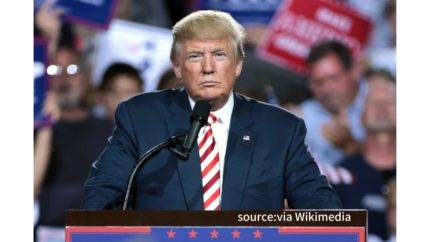Former President Donald Trump finds himself in dire straits as he desperately appeals to the Supreme Court to intervene and block the unanimous decision from the DC Circuit. This decision rejected his audacious claims to immunity from charges related to election subversion, spearheaded by Special Counsel Jack Smith. Trump’s legal team’s plea underscores the gravity of his situation, as he faces mounting legal challenges and dwindling options to evade accountability.
Trump’s Legal Gambit
In a last-ditch effort to salvage his waning political fortunes, Donald’s legal representatives presented a fervent plea to the Supreme Court. Characterizing the impending trial as a potential impediment to Trump’s campaigning efforts against President Biden, they argued for immediate intervention to prevent what they deemed as irreparable harm to Trump’s First Amendment rights and the interests of millions of American voters. However, critics quickly pointed out the inherent fallacies in this argument, emphasizing that Donald’s predicament is of his own making, having allegedly violated the law in his attempts to undermine the democratic process.
Moreover, Trump’s plea appears to hinge on the expectation of favorable treatment from a Supreme Court predominantly comprised of justices appointed during his tenure—a move that has sparked intense scrutiny over the court’s impartiality and integrity. Should the court acquiesce to Donald’s request, it risks tarnishing its reputation irreparably, setting a dangerous precedent wherein individuals in positions of power can circumvent accountability through partisan manipulation of the judicial system.
Implications for Democracy and Judicial Independence
At its core, Trump’s appeal to the Supreme Court not only underscores his own desperation but also poses profound implications for the foundational principles of democracy and judicial independence. By seeking to evade legal consequences for alleged misconduct, Donald challenges the very essence of accountability within a democratic society. Furthermore, his brazen attempt to sway the highest court in the land raises pertinent questions regarding the efficacy of checks and balances and the integrity of the American legal system.
As the nation awaits the Supreme Court’s decision, the outcome of this legal battle holds significant ramifications for the future trajectory of American politics and governance. Whether the court upholds the rule of law and rejects Donald’s plea or succumbs to political pressures and grants him immunity will undoubtedly shape public perception of justice and the sanctity of democratic institutions for generations to come.
Trump’s Legal Battle Intensifies
Former President Donald Trump’s legal saga reached a crescendo as he formally appealed to the Supreme Court to halt the Jan. 6 case, arguing that the trial’s continuation would disrupt his bid for reelection. Trump’s plea comes in response to the unanimous verdict by the DC Circuit, which outright dismissed his broad claims of immunity. Emphasizing the potential disruption to his political ambitions, Trump contends that the ongoing trial in the District of Columbia would significantly impede his efforts to seek office again, thereby undermining the electoral process.
Trump’s legal team asserts that the trial’s continuation would not only disrupt his electoral aspirations but also jeopardize the integrity of the electoral system itself. However, critics argue that Donald’s appeal reflects a desperate attempt to evade accountability. They assert that the American people deserve transparency and closure regarding the events of Jan. 6 before making informed electoral decisions. Despite Trump’s assertions, legal experts maintain that the rule of law must supersede political considerations, emphasizing the importance of upholding judicial integrity and accountability.
Implications for Justice and Accountability
The former president’s appeal to the Supreme Court has sparked fervent debate over the boundaries of executive immunity and the principle of accountability. Trump’s opponents warn that granting him immunity would set a dangerous precedent, enabling future leaders to evade consequences for their actions. They argue that Trump’s attempts to delay or dismiss the trial are indicative of a broader pattern of disregard for legal norms and democratic principles.
Moreover, concerns have been raised about the potential ramifications for the ongoing investigation into the events of Jan. 6 and the broader issue of political accountability. Critics assert that Donald’s maneuvers to halt the trial underscore the urgent need for a robust and independent judiciary capable of upholding the rule of law. Regardless of the outcome of Donald’s appeal, the legal battle surrounding the Jan. 6 case serves as a stark reminder of the enduring importance of accountability and the resilience of democratic institutions in the face of political turmoil.
Table of Contents
Discover more from OGM News NG
Subscribe to get the latest posts sent to your email.














